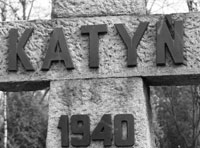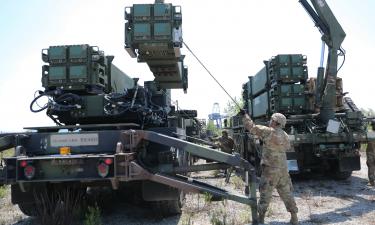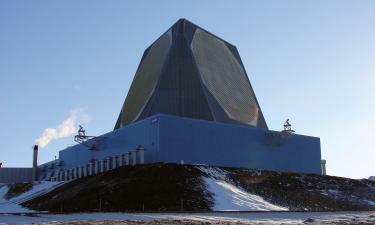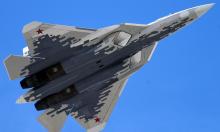Tragedy in Katyn: Memory without Speculation
On April 7, a ceremony was held in Katyn in the Smolensk region to mark the 70th anniversary of the massacre of Polish officers. Vladimir Putin and Donald Tusk participated in the ceremony. A special train delivered the relatives of murdered Poles to the memorial. This is the first time something like this happened, which could be blamed on a low level of relations between Poland and Russia.

Both countries took the preparation for the memorial seriously. Russian TV showed a popular film Katyn by Andjei Vaida followed by a serious discussion of Polish-Russian relations by politicians and public figures. In Poland, Katyn was a popular topic on TV and in the newspapers. Politicians and historians demanded that Russia reveals all the documents related to the events of 1940.
Polish President Lech Kaczynski, who made the speculation about Katyn one of his most prominent political issues, expressed his frustration about the fact that Poland will be represented in Katyn by his political competitor Donald Tusk. A special ceremony had to be organized for the President. The ceremony will be held near Smolensk on April 10, and high ranking officials will not be present.
What about this event that have been throwing a shadow on the relations between Russia and Poland for many years?
In 1943 a Nazi subdivision found a Polish burial near Katyn village. The Poles have been dead before Nazi stepped on Soviet earth.
The Polish government in exile oriented at the US and Britain demanded explanations from the USSR. The Soviets claimed that the Poles were killed by Nazi in 1941. A special committee created in Moscow after the war confirmed this theory.
The USSR has been denying its participation in the massacre for decades. Yet, some documents appeared in the West proving the opposite. The issue of acknowledging the fact of the massacre of Polish officers by NKVD was first raised by socialist Polish officials. Finally, in 1989 the USSR made an official statement that the Poles were murdered by the Russian state security.
Some documents regarding the event have not been yet decoded. Namely, the decision about killing of Polish officers captured in the late fall of 1939 after West Ukraine and West Belarus joined the USSR was made by Soviet officials early in 1940.
Poles were eliminated in the spring of 1940 in different areas of Russia, Ukraine and Belarus. Approximately 22 thousand people died, 4,000 of them died in the Smolensk region. When the first victims were found, the events were combined in one, and the case was named “Katyn.”
“Mikhail Gorbachev and Boris Yeltsin apologized for the crimes of Stalin’s regime. Current Russian government also officially acknowledges the massacre. Yet, Poland has been mulling over this issue for the last 20 years. As a result, Katyn became a litmus test of sorts reflecting the condition of Russian- Polish relations, “Viktor Shankov, a Belarus political analyst residing in Warsaw told Pravda.ru.
“Warsawhasbeenlinkingthistopictotheissuesnot connected to the tragic event. When Russia banned the import of Polish meat four years ago, Katyn issue was discussed at very high levels. When Moscow stated its intent to build a pipeline bypassing Poland, along the bottom of the Baltic Sea, Katyn was brought up again,” the expert mentioned.
“What does Poland want from Russia? In 2006 the ex-prime minister and the president’s brother Yaroslav Kaczynski provided a clear explanation. He stated that there will never be amicable relations between Moscow and Warsaw until Moscow recognizes Katyn massacre as a genocide of the Polish people and pays compensation to the families of the murdered of no less than 22 billion dollars. Which means, a million per every person murdered,” Shankov stressed.
“Polish media does not mention the fact that over eight thousand of Russian citizens killed by NKVD are also buried next to Polish officers in Katyn forest. Obviously, this information could take the wind out of sails of those who insist on qualification of this crime as genocide," the expert added.
The Polish are clearly crossing the line in their intent to prove that genocide took place in 1940. The released documents state that Polish officers and officials were killed as “hostile elements” and “class enemies.” They were not killed because of their nationality. Hence, there are no grounds for classifying the crime as genocide.
In 2004, based on the fact that the majority of facts about the event are made public; the Russian Prosecutor General closed Katyn case. The attempts of the Polish to prove that genocide took place failed. In January of 2009 Russia’s Supreme Court denied all claims.
Yet, the Polish government continued to insist. President Lech Kaczynski did not want to meet with Russian officials demanding them to repent for the events of 1940 (which has already been done by Gorbachev and Yeltsin). Russians immediately denied Polish requirements. As a result, the relations reached a dead end.
“The ice” was broken only in September of 2009. Vladimir Putin came to Poland to participate in the ceremony dedicated to the commencement of World War II and conducted negotiations with his Polish counterpart Donald Tusk. The Premiers agreed that Russia and Poland should not built relations based on historical speculations. At the same time, they agreed to open the archives and begin a peaceful dialogue about the issues of the past.
One of the results of that meeting was an agreement to participate in the memorial dedicated to the 70th anniversary of Katyn massacre. The meeting on April 7 became another step towards stopping political speculations regarding the tragedy and giving the history issues to historians, who will deal with them better than the Kaczynski brothers.
Vadim Trukhachev
Pravda.Ru
Russia Today: Katyn massacre still overshadows Russian-Polish relations
Subscribe to Pravda.Ru Telegram channel, Facebook, RSS!





